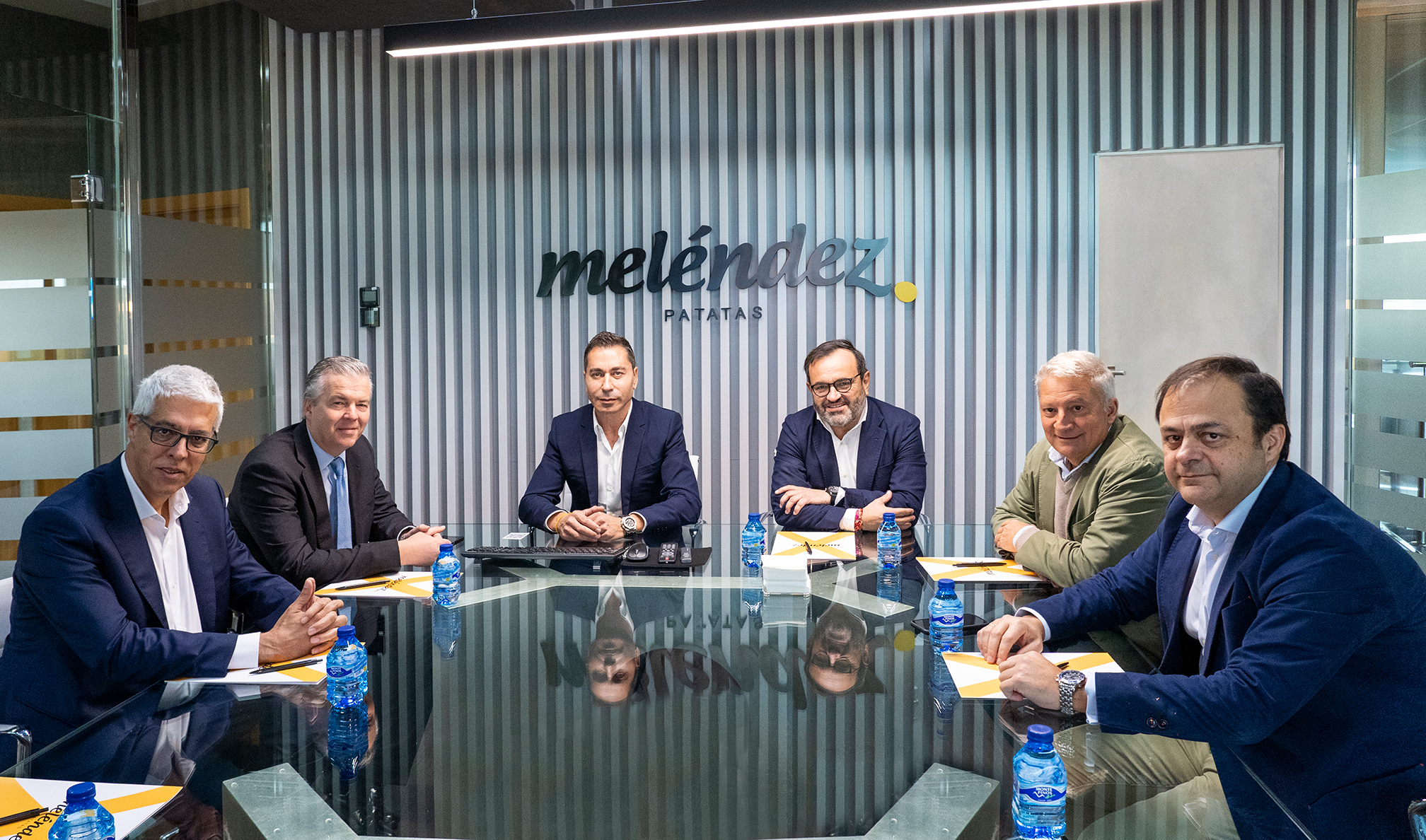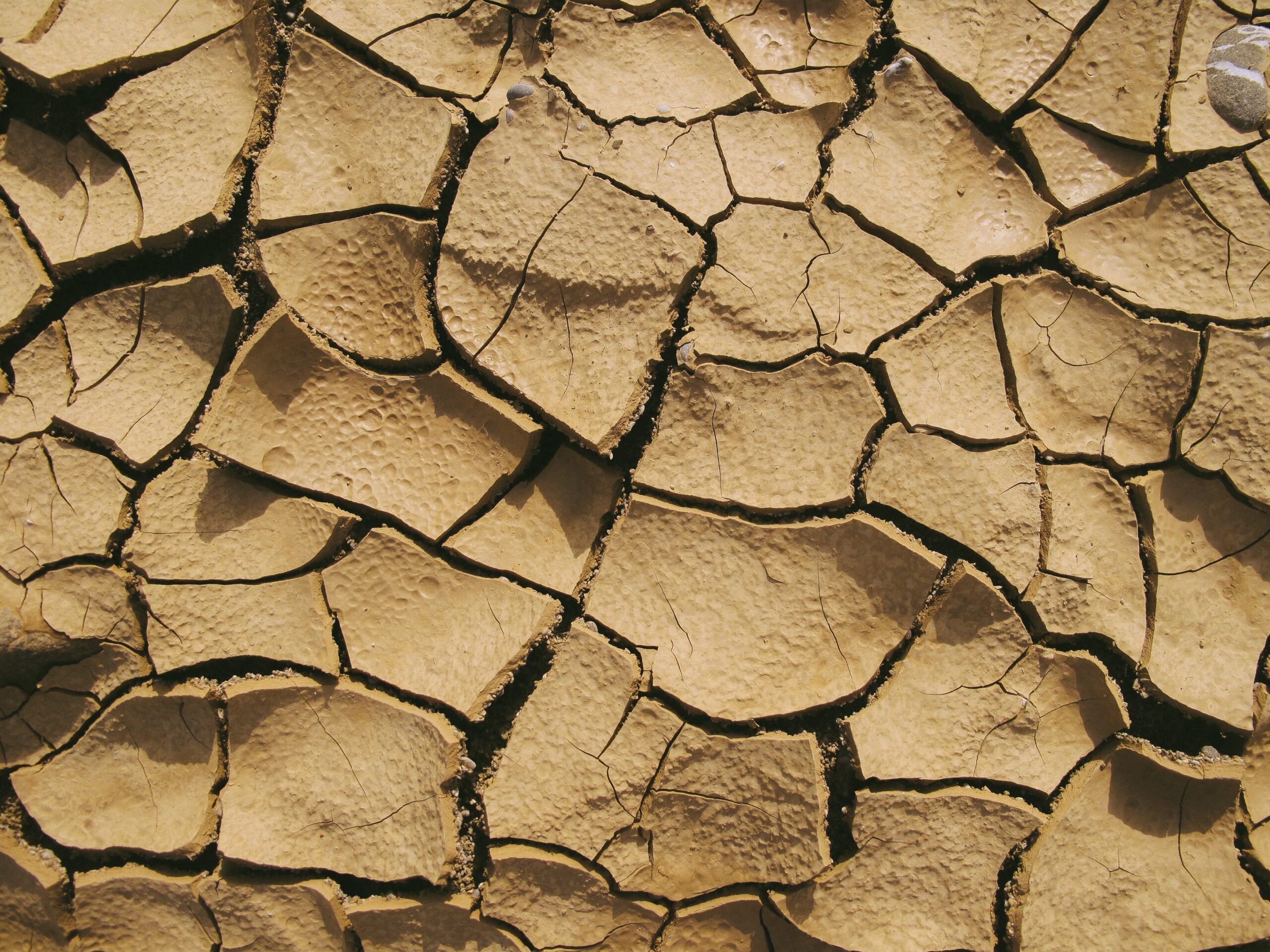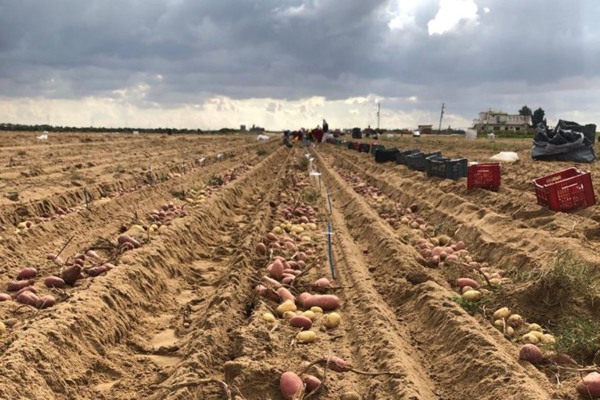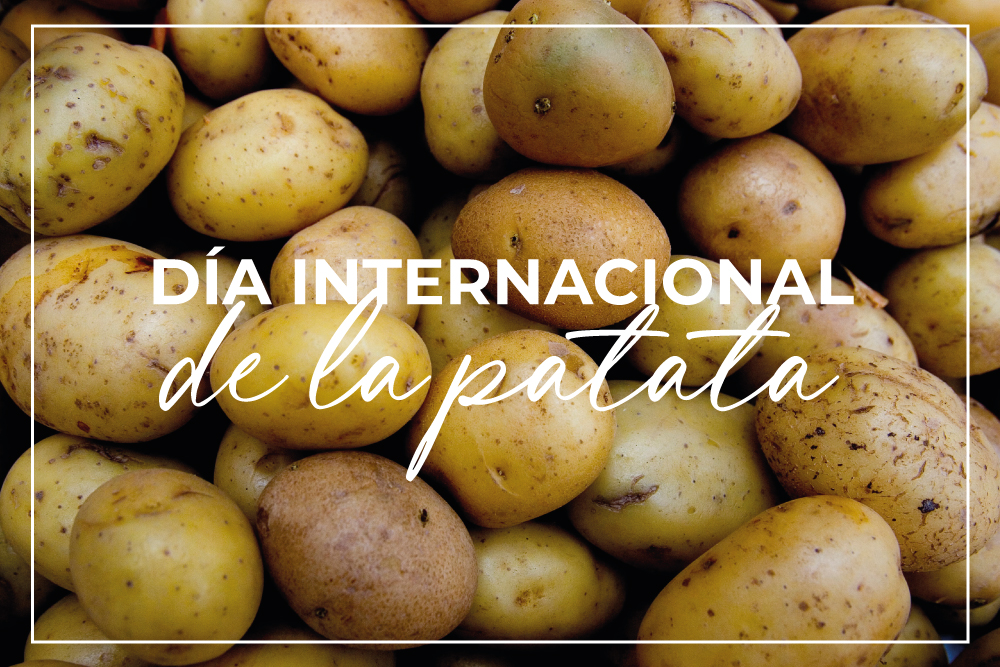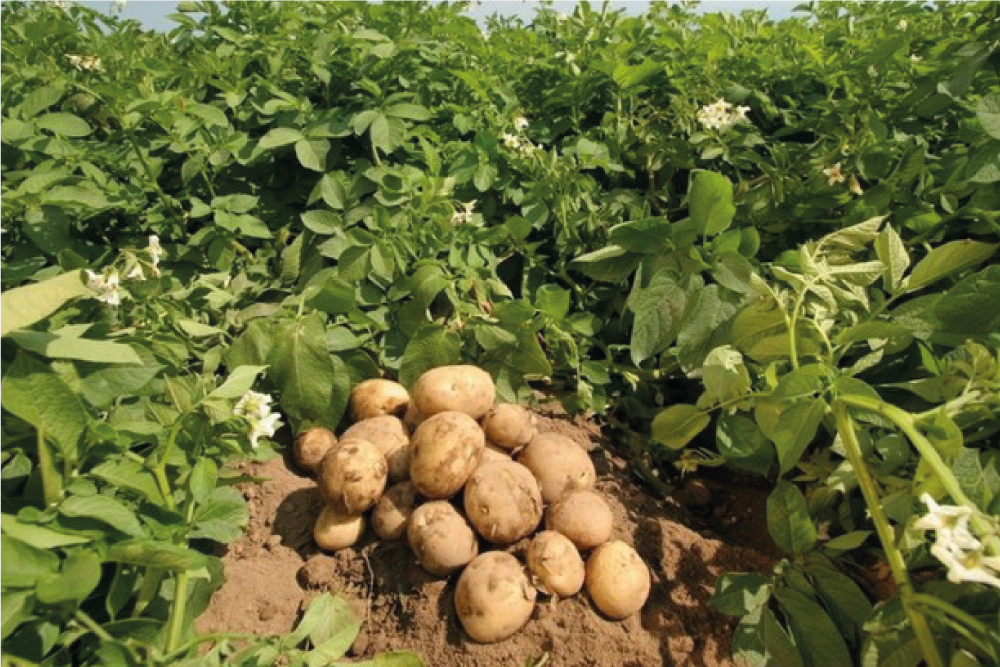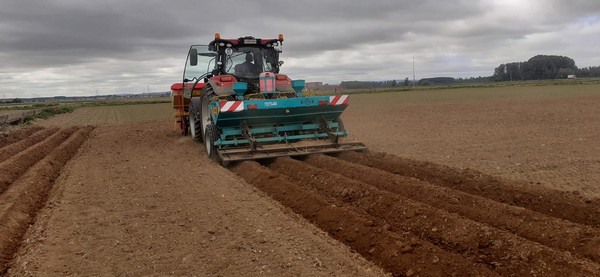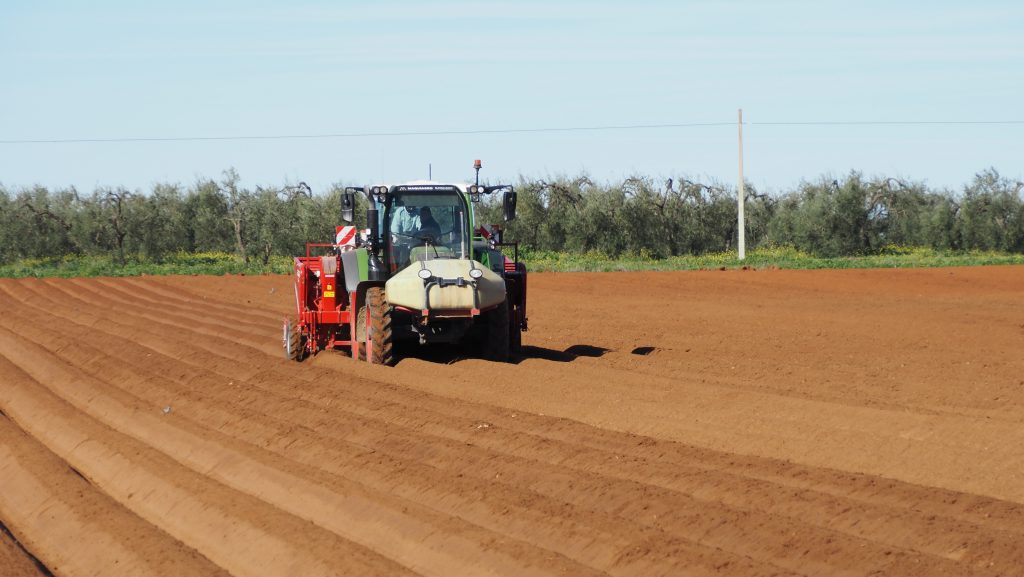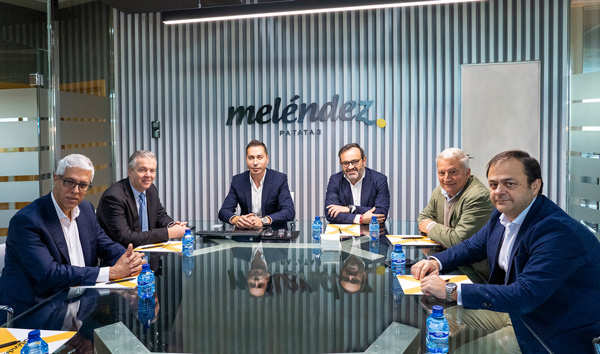Log in
Create an account
Reset password

Assessment of the potato season 2023: reflection and strategies for a sustainable future for the sector in Portugal
On 29 November 2023, Oliveira do Bairro was the setting for the important annual event “Balanço de Campanha da Batata”, organised by PORBATATA with COTHN and FNOP. This meeting, characterised by its innovative and collaborative nature, was attended by several personalities and companies linked to the potato sector in Portugal.
Following the opening session of the Oliveira do Bairro and Porbatata City Council, David Gouveia, Director of Competitiveness Services at GPP , presented a detailed and constructive analysis of the potato sector in Portugal, focusing on trends, challenges and potential opportunities for a more prosperous and sustainable economy. future in the sector.
Potato Sector: Characterisation and Observatory
The trends highlighted included a reduction in cultivated area and variations in production, with a sharp drop in 2022. Irrigation dominates production. The industry market has experienced remarkable growth, despite organisational challenges in the sector. Potato prices showed heterogeneity throughout the year, with variations in prices. International trade faces a negative trade balance, with France and Spain as main partners.
Consumption and self-sufficiency declined, although per capita consumption recovered in 2022. Fragmentation and lack of organisation affected price stability. The Price Observatory for Agri-Food Value Chains was presented as a publicly accessible instrument that provides price transparency and helps in policy formulation.
David Gouveia’s analysis highlighted challenges and opportunities for the sector, emphasising that sustainability will depend on adaptation, producer organisation and efficient strategies. Collaboration and innovation are crucial for long-term success and sustainability.
In the round table “Perspectives and challenges of the potato market in Portugal”, moderated by Nélia Silva (Comunicland), she highlighted the important climatic challenges facing the sector across Europe, with climate change affecting the potato seasons and causing unpredictable fluctuations in the total amount harvested.
Positive balance in 2023 for Portugal
Elisabete Coutinho, from Calcob , shared information on the potato season in northern and central Portugal. She highlighted challenges such as the dispersion of agricultural plots and the lack of profitability for these farmers. However, the overall balance was positive, driven by attractive prices and a demand that exceeded supply.
Almerinda Belchior, from Eurobatata, shared information on the southernmost potato season in the country. Despite some challenges, such as the impact of frost and adverse weather conditions, the balance was positive, with satisfactory yields.
Sérgio Ferreira, president of Porbatata, highlighted the importance of an encouraging result in the current season, but warned about the worrying decrease in potato cultivation areas in Portugal. He emphasised that, although trade results may be good, the trade balance will continue to be negative with more imports if no measures are taken.
Trend for Industry and 4th Range Products:
There was evidence of a shift in potato production towards the industrial market, motivated by the price stability offered by the industrial market compared to the fresh market. Ondina Afonso, president of the Continente Producers’ Club, mentioned that there is a growth in demand for fresh potatoes of 7% from 2022 to 2023, and 24% in the fourth quarter of 2010 range, with demand for organic-certified potatoes growing by 37% (in Continental shops).
Sustainability and Genomic Techniques:
Ondina Afonso highlighted the ‘zero waste’ certification in line with EU targets, as a process of anticipation and preparation for the ambitious EU targets.
Almerinda Belchior addressed the importance of new genomic techniques in the search for more disease and pest resistant potato varieties, although some resistant varieties are already on the market, as well as the need to regulate them properly and separate them from the definition of GMOs. .
Consumption trends and nutrition education:
Ondina Afonso and Sérgio Ferreira discussed the evolution of potato consumption and the need for nutrition education to correct misconceptions about its value.
Collaboration and future challenges:
Collaboration between industry, producers and organisations is essential to face future challenges and seize opportunities. The importance of promoting potatoes as a healthy food and clarifying existing misconceptions was highlighted. Balancing economic, social and environmental sustainability in potato production is essential to ensure a prosperous future for the potato sector.
From Ondina Afonso’s point of view, potato marketing requirements are sometimes “castrating”, a very important issue to be addressed, perhaps in a project to be explored with Porbatata and APED, in a reformulation of the technical data sheets. She also points out that inspections of products in commercial areas, by official inspection bodies, contribute greatly to the process of product verification from the warehouses.
David Gouveia said that it is necessary to inform and educate the consumer, as he does not believe that it is the trade rules that prevent marketing. He mentioned that the producer will not be able to satisfy all consumer demands, and will only produce what is visually acceptable. He considers that the organic production system is highlighted as one of the objectives of the EU’s “Prato ao Prado”, because there is no data, or other basic information, demonstrating the effectiveness of food production with less use of chemicals. He adds that the “zero waste” certification is a B2B certification, and no other certifications should emerge to be used whenever consumer trends emerge.
Almerinda Belchior considered that it has never been safer to consume food and for producers to comply with all the requirements. There has been a major evolution in production methods, with more cultural techniques and product analysis, giving consumers the guarantee that the product was produced with as little waste as possible. Zero waste” is just one more production technique. But it is even more important,
considered that consumer education should start early in school, as it is important to educate about the origin of the food we eat.
Sérgio Ferreira stressed that certifications are emerging, including from customer demands, and the ranks are trying to move towards what makes the most sense. He considered that the Green Pact strategy was “risky” and could significantly reduce European production capacity. Solutions to meet European targets must be sought by all, but then we see imports from third countries? He stressed that sustainability should not only be thought of from an environmental point of view, but also from an economic and social point of view. He concluded by highlighting the evolution of per capita potato consumption, which will increase significantly by 2022, and the work to promote this product is essential and must continue with the collaboration of all those involved.
Elisabete Coutinho considered that there is a need for union between organisations in Portugal, which is a path that is being followed and must continue. She added that it is important to defend the interests of farmers, customers and consumers, seeking a middle ground. He concluded by saying that guaranteeing prices to producers in the fresh market, as is done in the industrial market, is an opportunity that should be explored.
The event concluded with the panel “Farm to table impact and solutions for potato”. This panel was attended by representatives from Wiscrop, Certis Belchim and Nutrifield, who shared their visions, innovations and best practices related to potato cultivation. They highlighted how integrated production, plant protection aligned with European targets and effective soil management are key to the success and sustainability of the sector.
Discussions and presentations at the event reinforced the need for a collaborative and innovative approach in the potato sector. Inter-organisational linkages, adaptation to changing market and climatic conditions, as well as the promotion of the potato as a healthy and sustainable food were identified as key elements to ensure the resilience and continued growth of the sector in Portugal.
In summary, the ‘Balanço de Campanha da Batata’ in Oliveira do Bairro was a valuable opportunity for sector actors to share knowledge, discuss challenges and explore strategies for a more sustainable and prosperous future for the Portuguese potato.
Subscribe to our newsletter
You will receive a 20% discount for your first purchase in our online shop.
Contact
Shop
tiendaonline@patatasmelendez.com
Commercial
comercial@patatasmelendez.com
Quality
calidadmelendez@patatasmelendez.com
Las partes, declaran conocer y aceptar las Condiciones Generales de contratación de MELENDEZ MARKET S.L que se encuentran disponibles en sus oficinas sitas en Crta Villaverde km 3 Nave E puestos 32-34 Mercamadrid, 28031 Madrid, en la URL: https://patatasmelendez.com/con en el Registro de Bienes Muebles de Madrid y acuerdan de manera expresa someter a la ley española todo litigio, discrepancia o reclamación resultante de la contratación efectuada, y al Arbitraje del Tribunal de la Asociación para el Arbitraje Mercantil “TAM” de Madrid, en el marco de sus Reglamentos, al cual se encomienda la administración del arbitraje y la designación del árbitro o tribunal arbitral, obligándose desde ahora al cumplimiento de la decisión arbitral.
